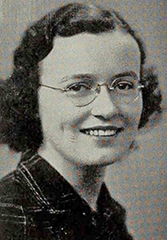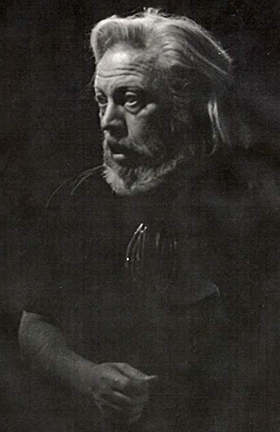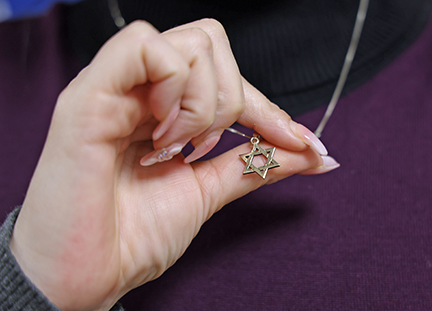Jan Reno was one of eight siblings, including her twin sister. Her family became prisoners at the Dachau concentration camp in Munich, the first Nazi concentration camp in Germany.
It operated from 1933 to 1945, subjecting prisoners to forced labor and brutality based on ethnicity, religion and other factors. Over 200,000 people from across Europe were imprisoned in Dachau with tens of thousands perishing due to starvation, disease and violence.
“My grandmother was the only one out of our whole family who survived,” Graham said.
It was on April 29, 1945, that Dachau was liberated by American soldiers, one of whom would become Jan’s future husband.
“I remember the day the Americans came.”
“My grandfather, Raymond Reno, was part of the 45th Infantry Division, one of the two divisions that liberated Dachau. He and 47 other soldiers discovered the camp and was part of the team put together for the sole purpose of liberating the camp survivors,” she said.
Amongst the survivors was Jan, who endured unimaginable suffering, including losing her twin sister to cruel medical experiments. For most of her life, she remained steadfast in her silence about her experiences, a silence that spoke volumes about the horrors she witnessed.
“My grandmother would never talk about anything that she had been through,” Graham said. “The only thing I ever remember her saying was, ‘I remember the day the Americans came.’”
Following the war, Jan and Raymond wed and embarked on a union grounded in love and perseverance, sharing a passion for patriotism and a commitment to education. Jan went on to earn her master’s degree from the College of New Rochelle to become a linguist, becoming proficient in many languages and eventually working with the FBI.
Raymond used his G.I. Bill to pursue a Ph.D. in literary history and went on to teach at Georgetown University, serving as the head of the English department for 30 years. His photo adorns the wall at the Raymond H. Reno Theatrical Hall at Georgetown University.
Pride and gratitude
The liberation brought not only freedom but also a sense of pride and gratitude. Jan Reno, later becoming an American citizen, held a deep admiration for the American military recognizing the role they played in her liberation.
“My grandmother was always extremely proud of the American military,” Graham added. “Becoming an American citizen was the proudest day of her life.”
Graham (pictured above) is the Veterans Canteen Service chief for the Alvin C. York VA in Murfreesboro, Tennessee. Every day, she carries a tangible reminder of her family’s legacy—her grandmother’s pendant that survived the horrors of the Holocaust. It serves as a poignant symbol of resilience and endurance.
“This pendant was the only thing she had that made it out of the war. Several times the chain has broken and I [would] think the pendant is surely gone. But I will find it later in the folds of my clothes or miraculously in a pocket,” she said.
Graham remains deeply connected to her family’s history, a source of empathy and understanding in her interactions with Veterans.
ASUNTOS DE LOS VETERANOS | ||
Noticias de VA |







.png)

.png)






